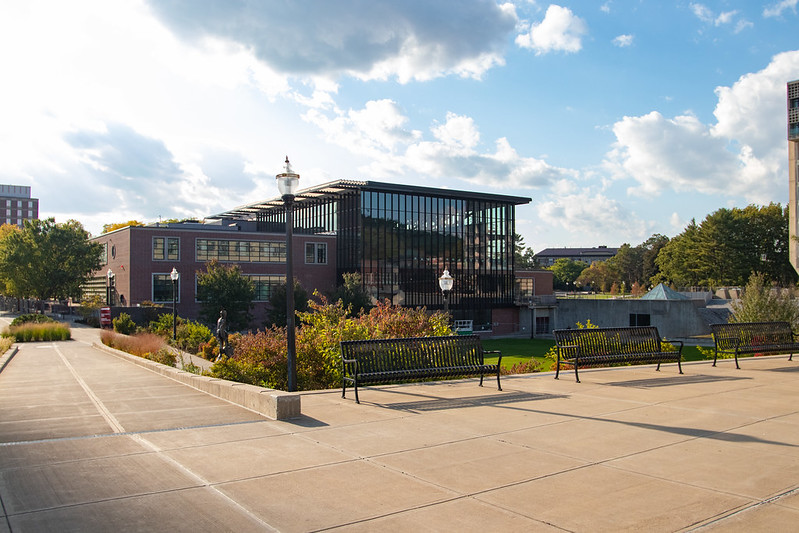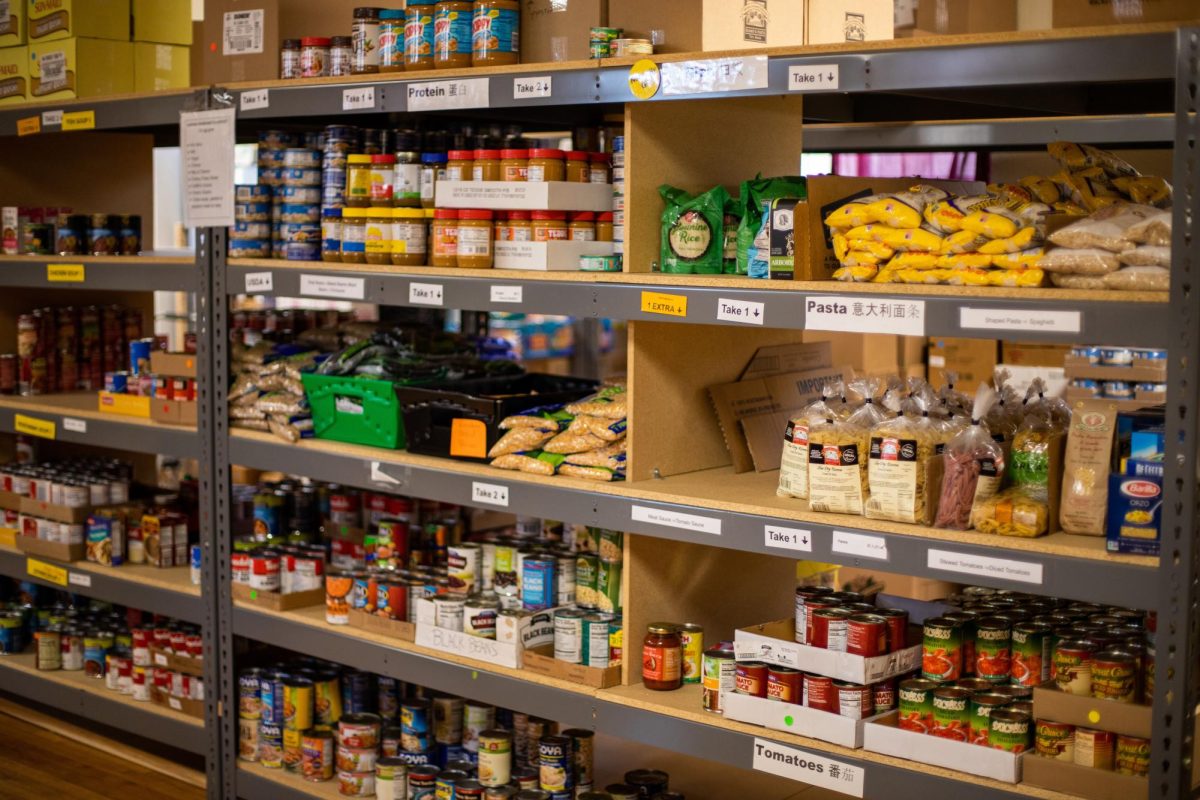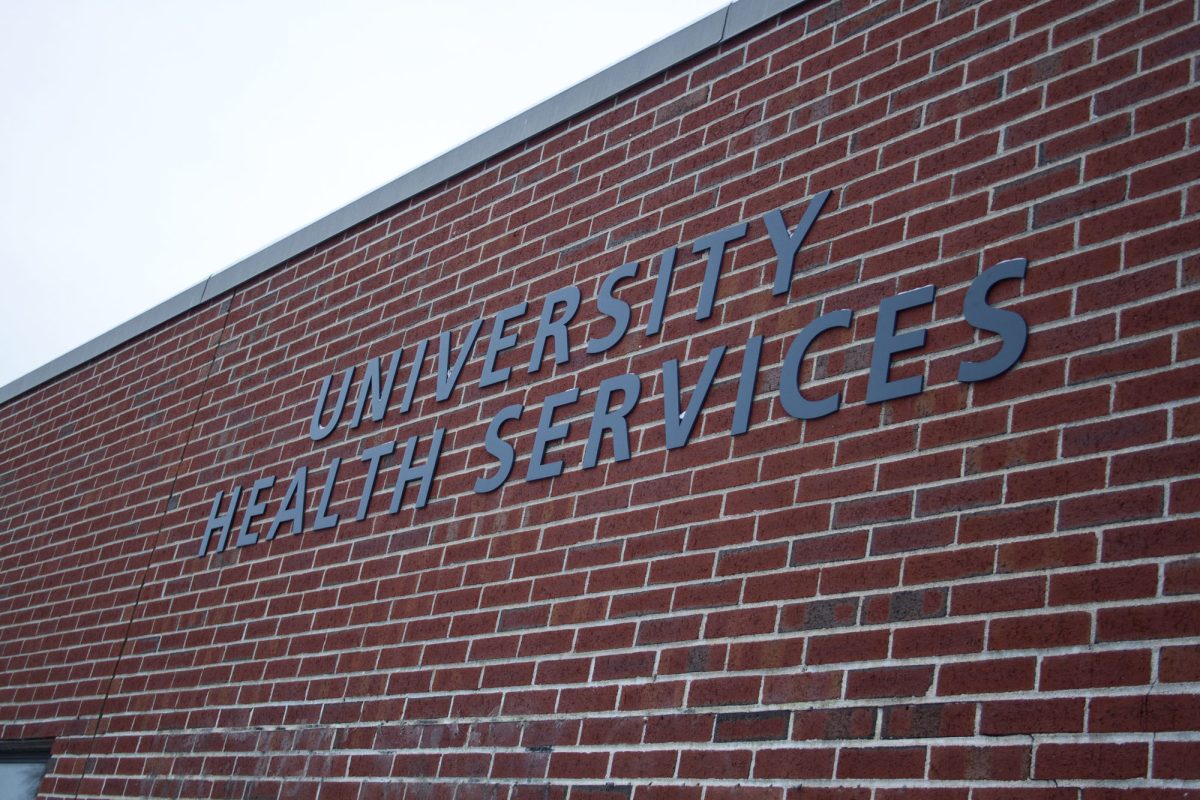
Editor’s note: A name has been removed from the story because the student’s quote was taken out of context, due to an editing error.
“It’s like riding the wave, if you learn how to master the energy,” said Joyce Joseph, a sex therapist and the former clinical director at the Human Sexuality Institute of Washington, D.C.
Students interested in receiving extra credit for their Public Health 160 class and others interested in learning about sexual health filed into room 160 of the Isenberg School of Management at the University of Massachusetts Wednesday night to participate in the discussion “Sex: Getting it Right” led by Joseph.
The discussion focused on sexual health and trying to understand the dynamic of sexual pleasure versus pain.
Joseph commenced the discussion with a breath, reminding the audience it should “feel comfortable with your genitals, not as something that’s just down there.” She then talked about anxiety and nervousness surrounding sex in our society.
Joseph explained how her work entails analyzing sexual functioning issues for both men and women and determining whether the issue she examines is a medical one or a psychological one. Joseph said those who experience sexual pain undergo a “heroic journey,” explaining the range of sexual pain from benign to diseases with no cure.
She went on to demonstrate sexual energy and libido as what she called life forces that move throughout the body.
“When energy is expressed sexually, it has an erotic flavor to it; when it’s expressed in the heart, it has a quality of love,” Joseph said. “Our culture is split between love and lust.”
Joseph said erotic energy follows a wave-like pattern flowing toward an orgasm, rather than a linear one. She said of the emotional complications that sometimes come with sexual relations that she feels the two strongest emotions which block sexual energy are anger and anxiety. She said pain often overrides erotic feelings.
One student in the audience asked several questions throughout the discussion. One student, a sophomore communications major, asked if it is “hard to achieve a g-spot orgasm.”
Joseph replied that the “g-spot orgasm” is anatomical, because she said some women have more nerve endings than other women. Joseph also brought up what she said is a controversial new theory that the g-spot orgasm is actually a clitoral orgasm from inside the female genitals.
Another topic the students were focused on was birth control pills. A student asked about the effects of being on the pill for a short period of time. Joseph advised her that each individual should make an educated decision on how the pill might affect their body.
Joseph also discussed various sexual health-related conditions women can contract, including Vaginismus, which she said is a muscle spasm and can be turned around with the right treatment, and Vulvodynia, a pain in the vulva which she said is more complex and has no known cause.
Carmel Kelly, a master’s of public health candidate, public health teaching assistant and a community educator for students in the Holyoke area, spoke next, noting that this discussion looked at a variety of sexual health issues which her classes examine, but pointed out that this talk was distinct in that it focused on pain and pleasure, and that she feels pleasure is mostly left out in discussions.
Kelly discussed Vulvodynia, which she said 18 percent of women may have. Kelly explained that “it’s not really talked about because it’s not understood and there’s a lack of support.”
She described it as a syndrome causing inexplicable pains in the vulva, as well as burning, stinging and irritation.
“It’s not diagnosed the way it should be,” she said. “Women on average will go through three doctors before being diagnosed.”
She said she feels the issue is not a high priority in terms of funding and research because she feels it’s a highly misunderstood condition. Kelly also spoke about a degree of shame women endure while experiencing pain from Vulvodynia.
She said women who suffer from the condition feel like “defective sexual partners,” adding that she feels to alleviate some of this shame women feel, more support needs to be available through public education and access to support groups.
Kelly is also involved in the online support group Pioneer Valley Vulvodynia/Vulva Disease, which is intended to help shed more light on Vulvodynia and give support and an outlet for those who experience it.
Nancy Pierce can be reached at [email protected].






